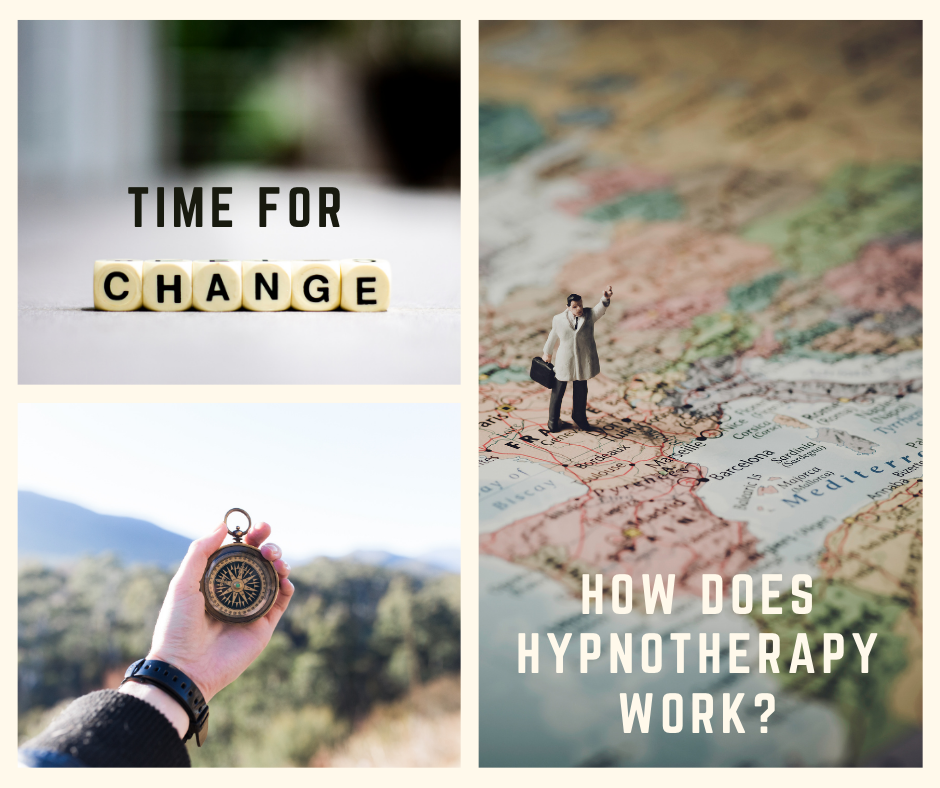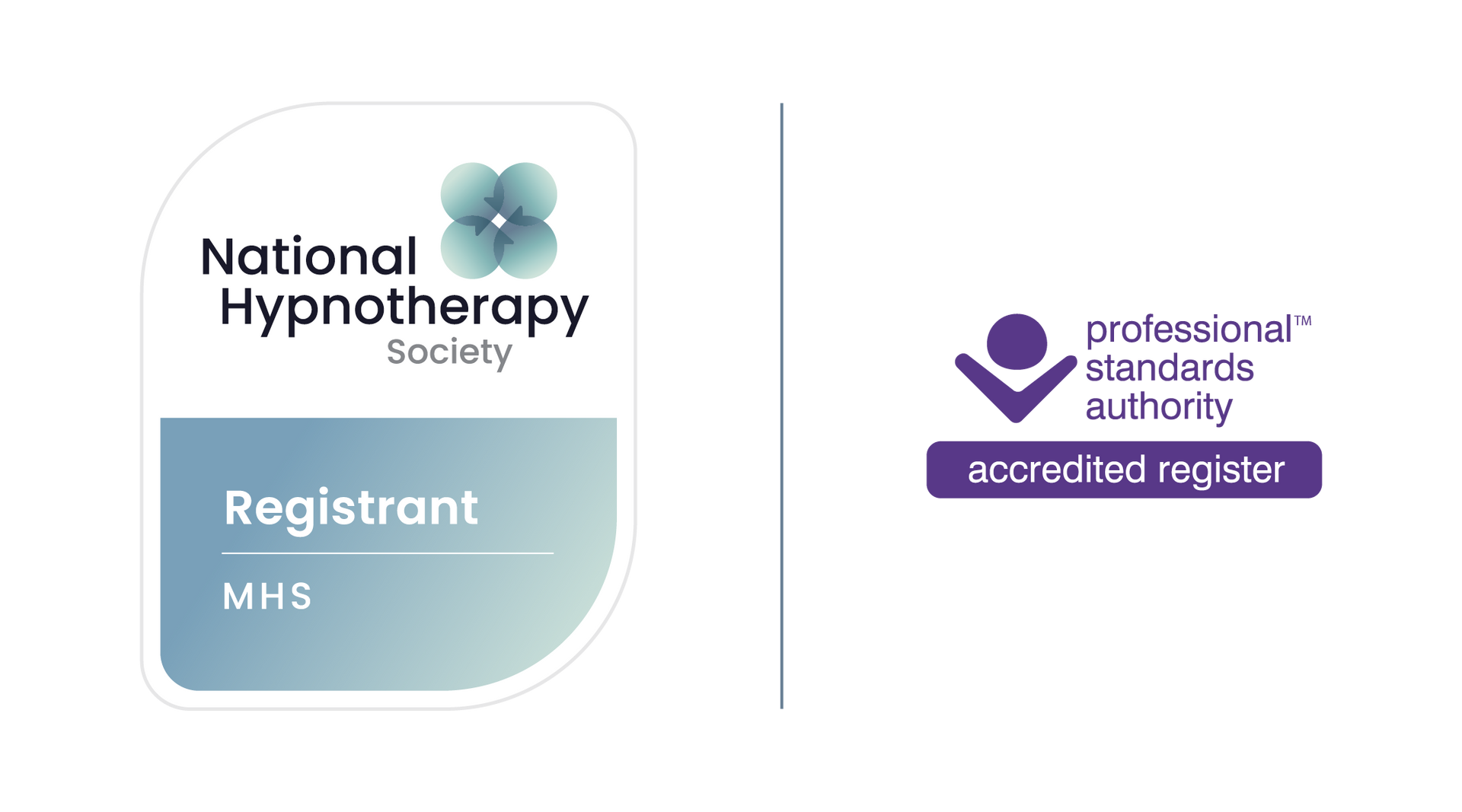How does hypnotherapy work?
Amanda Lonergan • April 19, 2021
Hypnotherapy is like having your own personal guide.
Hypnotherapy makes positive changes to take you ever closer to what feels right for you. It’s like being shown through the entrance to your own personalised inner guide to life – your subconscious.
Did you know that only a very small part of our mind is conscious?
Possibly a bit of a scary thought that for the most part we’ve no idea what we’re thinking, planning or doing even! Definitely for the best though. Otherwise we’d probably go a bit potty if all our memories, thoughts and feelings were skydiving around in our head all at once! In fact, we tend to take it for granted that our mind and body knows what it’s doing and let it get on with it. For the most part that works well, as the whole mechanics has a natural instinct drummed into it, and that is to protect us above all else. So, it’s not until something goes wrong in our lives or with our bodies or we don’t like the feelings we’re having, that we might start to question why?
Hypnotherapy searches for the answers we're not yet aware of.
Only hypnotherapy doesn’t just ask “why?”
Hypnotherapy looks at the how’s as well as the why’s. How did I get into this situation? How did I get to smoking 40 cigarettes a day? How does this make me feel now? How do I want to feel? How can I change this? How can I get a different result? These are the kind of questions that often leave us stumped. They’re rarely easy to answer so this is where we need to go deeper.
As humans we function on three different levels of awareness in our mind; the conscious, subconscious and unconscious parts. Imagine them like layers. The conscious part is at the top and the most accessible. It holds everything we’re aware of in the here and now; from what’s going on around us in our immediate environment, to any current internal thoughts and emotions concerning decision making, communication, organisation and planning as well as any physical sensations experienced at that time.
Next comes the subconscious layer. This is where we mostly go to in hypnosis and it’s a very natural state to be in. It’s the next layer down from our conscious which we regularly access lightly when we’re being creative, daydreaming, watching TV or reading a book. However, it’s also split into various further depths of awareness where all our physical functions are processed including our breathing and digestion and it also controls our attitudes, emotions, memories, feelings, beliefs and gut instincts. The level we reach in hypnosis can vary from person to person but there’s always work that can be done at any of these subconscious levels.
At its deepest level we come to the unconscious mind. This is where repressed thoughts and memories are contained. It’s more difficult to access the unconscious as our awareness is very low there, but it’s still possible using specific hypnotherapy techniques. It would depend on what the issue is as to whether it was considered necessary or beneficial to do so.
So, what does hypnotherapy do in there?
Hypnotherapy focuses our concentration into our subconscious, temporarily shifting everyday noise into the background in order to clear the way for us to access all our thoughts and feelings and shine a light directly at them. When we’re having a look around in our subconscious, we can ask it questions, explore our feelings, suggest ideas, access our gut instincts, visualise moments. It’s almost like having a meeting with yourself to assess the overall situation; acknowledge what obstacles there are to overcome, decide what changes are needed, what’s the best course of action to take and how to take it!
Hypnotherapy works on the basis that only you know what’s best for you. Now that doesn’t necessarily mean that you’re currently thinking or doing what’s best for you. In fact, it’s human nature to get it a bit mixed up at times and head down a path that’s totally counter intuitive to what we actually want or need. This usually occurs when our thoughts, beliefs, feelings and behaviours between our conscious, subconscious and unconscious minds are at odds with one another in some way or they’re not working towards the same cause. For example, you might feel lonely and missing your friends but you never seem to make the time to invite them over. It may be that there’s a limiting belief lurking in your subconscious somewhere, that really you believe you’ll mess up the cooking or you’re not confident that these friends actually like you, so subconsciously you find alternative things to do.
In other instances, you might be feeling like you’re never doing enough but it makes no sense to you as you’re always run off your feet. Or perhaps you have an irrational fear of slugs which nobody quite gets including yourself but they genuinely make you feel deeply unnerved.
These are the kind of why questions we look for in hypnotherapy. Why do we do something that prevents us achieving what we want? Why are we scared of things that we’re more a danger to, than they are to us? Why do we eat three bags of deep-fried chips every night in front of the TV then moan about the zip on our trousers straining every day? If these sound like the sort of things you’ve come across, you’re not alone. These are just a few of the many anomalies of the way we humans behave. However, despite this, deep down (in your subconscious) you know if something is or isn’t mentally or physically healthy for you so hypnotherapy can take you to the place where we can find the answers and the changes that you’re looking for.
Hypnotherapy restores the natural balance between your thoughts, beliefs, emotions and behaviours so you can get yourself back to running smoothly again and leave your subconscious to get on with its job whilst you’re out in the world enjoying the results.
Did you know that only a very small part of our mind is conscious?
Possibly a bit of a scary thought that for the most part we’ve no idea what we’re thinking, planning or doing even! Definitely for the best though. Otherwise we’d probably go a bit potty if all our memories, thoughts and feelings were skydiving around in our head all at once! In fact, we tend to take it for granted that our mind and body knows what it’s doing and let it get on with it. For the most part that works well, as the whole mechanics has a natural instinct drummed into it, and that is to protect us above all else. So, it’s not until something goes wrong in our lives or with our bodies or we don’t like the feelings we’re having, that we might start to question why?
Hypnotherapy searches for the answers we're not yet aware of.
Only hypnotherapy doesn’t just ask “why?”
Hypnotherapy looks at the how’s as well as the why’s. How did I get into this situation? How did I get to smoking 40 cigarettes a day? How does this make me feel now? How do I want to feel? How can I change this? How can I get a different result? These are the kind of questions that often leave us stumped. They’re rarely easy to answer so this is where we need to go deeper.
As humans we function on three different levels of awareness in our mind; the conscious, subconscious and unconscious parts. Imagine them like layers. The conscious part is at the top and the most accessible. It holds everything we’re aware of in the here and now; from what’s going on around us in our immediate environment, to any current internal thoughts and emotions concerning decision making, communication, organisation and planning as well as any physical sensations experienced at that time.
Next comes the subconscious layer. This is where we mostly go to in hypnosis and it’s a very natural state to be in. It’s the next layer down from our conscious which we regularly access lightly when we’re being creative, daydreaming, watching TV or reading a book. However, it’s also split into various further depths of awareness where all our physical functions are processed including our breathing and digestion and it also controls our attitudes, emotions, memories, feelings, beliefs and gut instincts. The level we reach in hypnosis can vary from person to person but there’s always work that can be done at any of these subconscious levels.
At its deepest level we come to the unconscious mind. This is where repressed thoughts and memories are contained. It’s more difficult to access the unconscious as our awareness is very low there, but it’s still possible using specific hypnotherapy techniques. It would depend on what the issue is as to whether it was considered necessary or beneficial to do so.
So, what does hypnotherapy do in there?
Hypnotherapy focuses our concentration into our subconscious, temporarily shifting everyday noise into the background in order to clear the way for us to access all our thoughts and feelings and shine a light directly at them. When we’re having a look around in our subconscious, we can ask it questions, explore our feelings, suggest ideas, access our gut instincts, visualise moments. It’s almost like having a meeting with yourself to assess the overall situation; acknowledge what obstacles there are to overcome, decide what changes are needed, what’s the best course of action to take and how to take it!
Hypnotherapy works on the basis that only you know what’s best for you. Now that doesn’t necessarily mean that you’re currently thinking or doing what’s best for you. In fact, it’s human nature to get it a bit mixed up at times and head down a path that’s totally counter intuitive to what we actually want or need. This usually occurs when our thoughts, beliefs, feelings and behaviours between our conscious, subconscious and unconscious minds are at odds with one another in some way or they’re not working towards the same cause. For example, you might feel lonely and missing your friends but you never seem to make the time to invite them over. It may be that there’s a limiting belief lurking in your subconscious somewhere, that really you believe you’ll mess up the cooking or you’re not confident that these friends actually like you, so subconsciously you find alternative things to do.
In other instances, you might be feeling like you’re never doing enough but it makes no sense to you as you’re always run off your feet. Or perhaps you have an irrational fear of slugs which nobody quite gets including yourself but they genuinely make you feel deeply unnerved.
These are the kind of why questions we look for in hypnotherapy. Why do we do something that prevents us achieving what we want? Why are we scared of things that we’re more a danger to, than they are to us? Why do we eat three bags of deep-fried chips every night in front of the TV then moan about the zip on our trousers straining every day? If these sound like the sort of things you’ve come across, you’re not alone. These are just a few of the many anomalies of the way we humans behave. However, despite this, deep down (in your subconscious) you know if something is or isn’t mentally or physically healthy for you so hypnotherapy can take you to the place where we can find the answers and the changes that you’re looking for.
Hypnotherapy restores the natural balance between your thoughts, beliefs, emotions and behaviours so you can get yourself back to running smoothly again and leave your subconscious to get on with its job whilst you’re out in the world enjoying the results.
So why not calm yourself down and gently unravel some mysteries of being you? For more information go to indigowellness.co.uk

You probably already know the detrimental effects of long term smoking, you've had the health issues drummed into you time and time again. Perhaps you've reached the point when smoking is no longer serving the same purpose it used to for you, in fact it's becoming a nuisance and you're determined to stop and break free from being tied to the monotonous cravings every day. Yet despite all your best intentions, the good advice and rational thinking, you still continue to smoke. So why can't you just stop? If only it were that simple. Rationalising never works when emotions are at play and if it were that simple you wouldn't be addicted in the first place. Blame it on the nicotine. Or more precisely, blame it on the feel-good chemicals that are produced by the receptors which are created by the nicotine. It's these that are addictive and keep us coming back for more.





